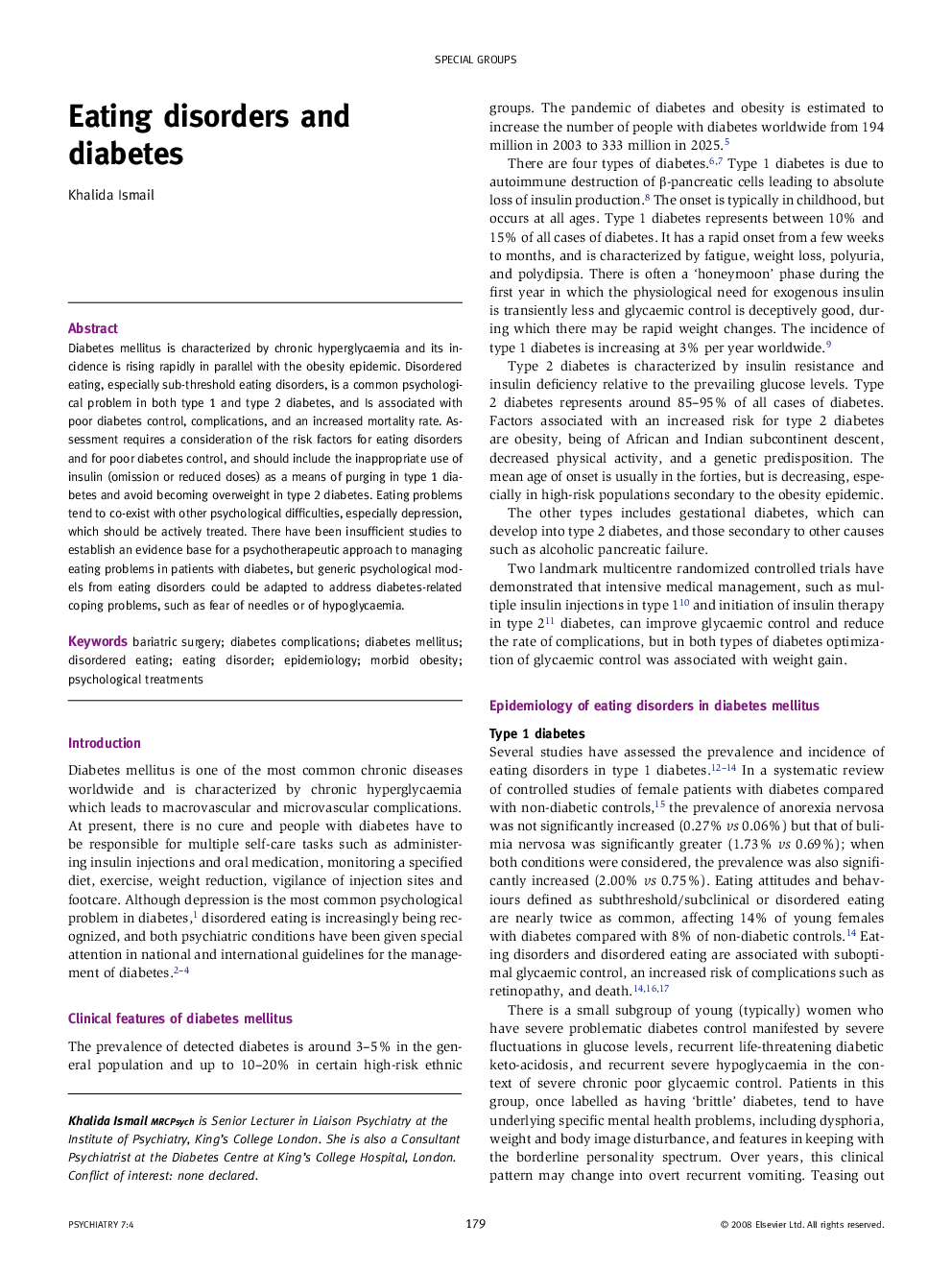| Article ID | Journal | Published Year | Pages | File Type |
|---|---|---|---|---|
| 4190037 | Psychiatry | 2008 | 4 Pages |
Diabetes mellitus is characterized by chronic hyperglycaemia and its incidence is rising rapidly in parallel with the obesity epidemic. Disordered eating, especially sub-threshold eating disorders, is a common psychological problem in both type 1 and type 2 diabetes, and Is associated with poor diabetes control, complications, and an increased mortality rate. Assessment requires a consideration of the risk factors for eating disorders and for poor diabetes control, and should include the inappropriate use of insulin (omission or reduced doses) as a means of purging in type 1 diabetes and avoid becoming overweight in type 2 diabetes. Eating problems tend to co-exist with other psychological difficulties, especially depression, which should be actively treated. There have been insufficient studies to establish an evidence base for a psychotherapeutic approach to managing eating problems in patients with diabetes, but generic psychological models from eating disorders could be adapted to address diabetes-related coping problems, such as fear of needles or of hypoglycaemia.
